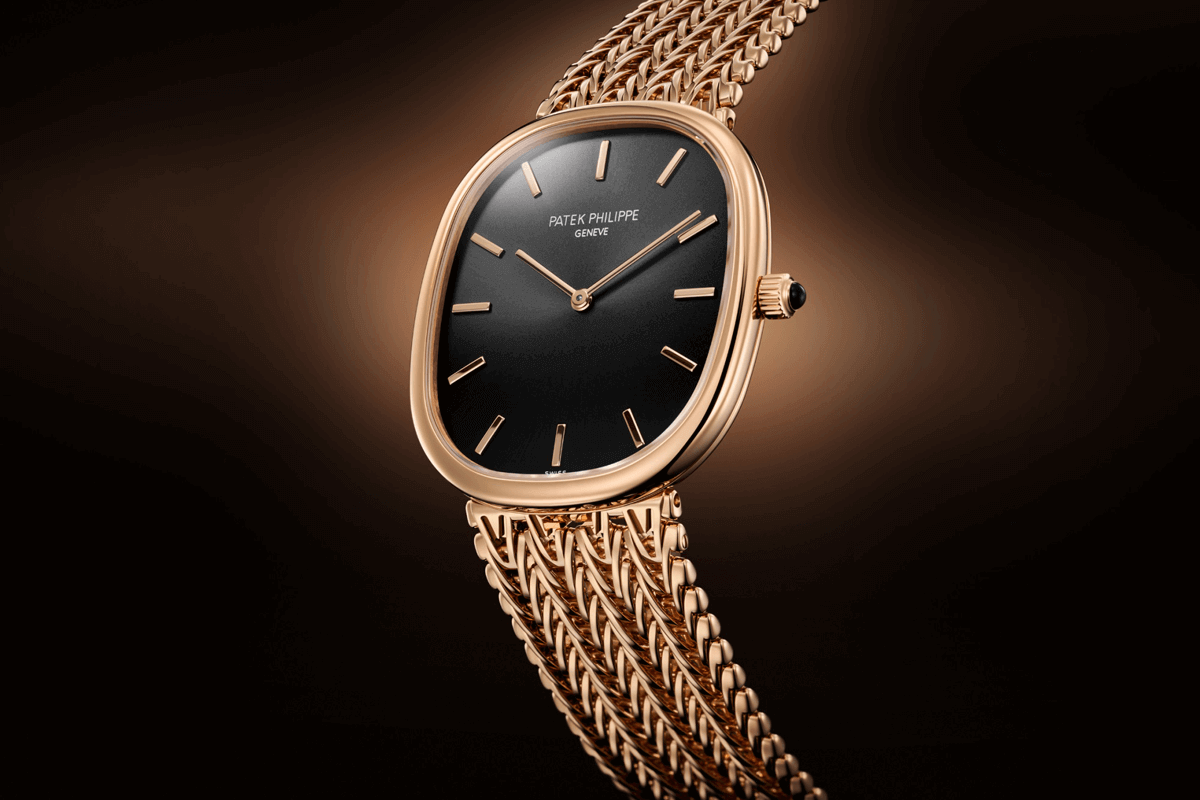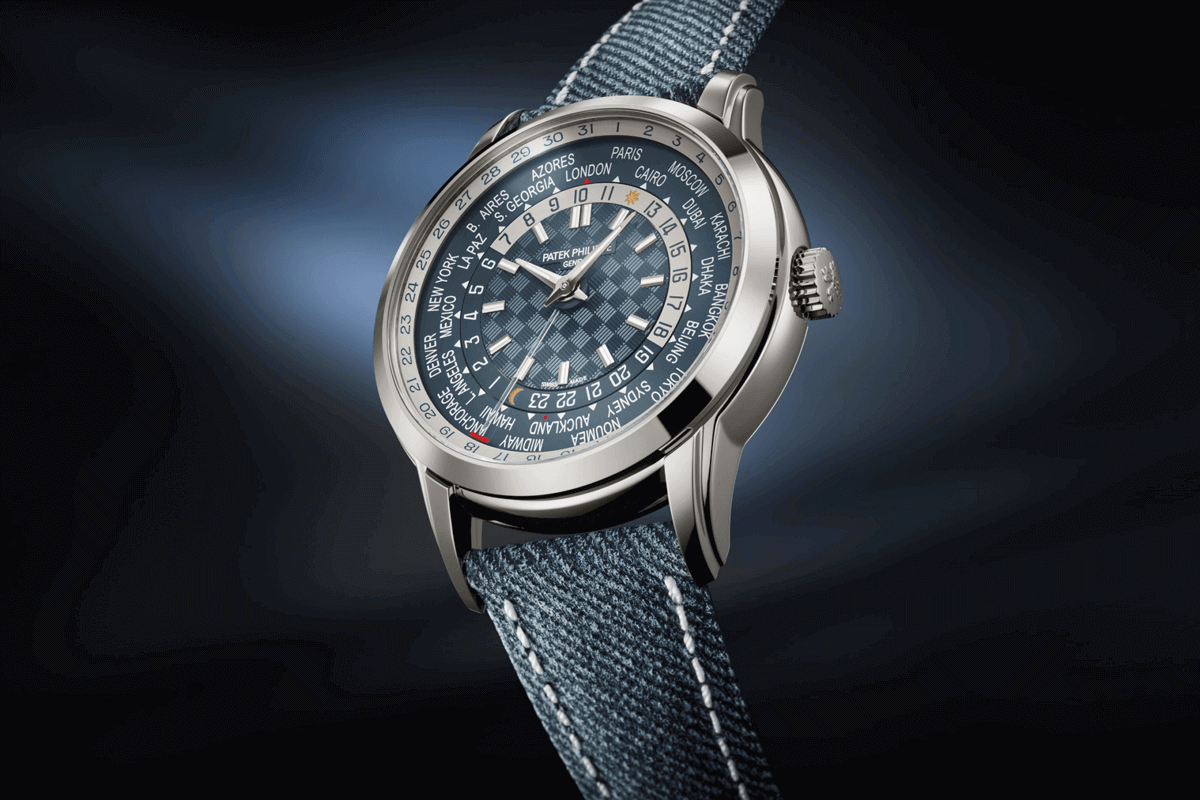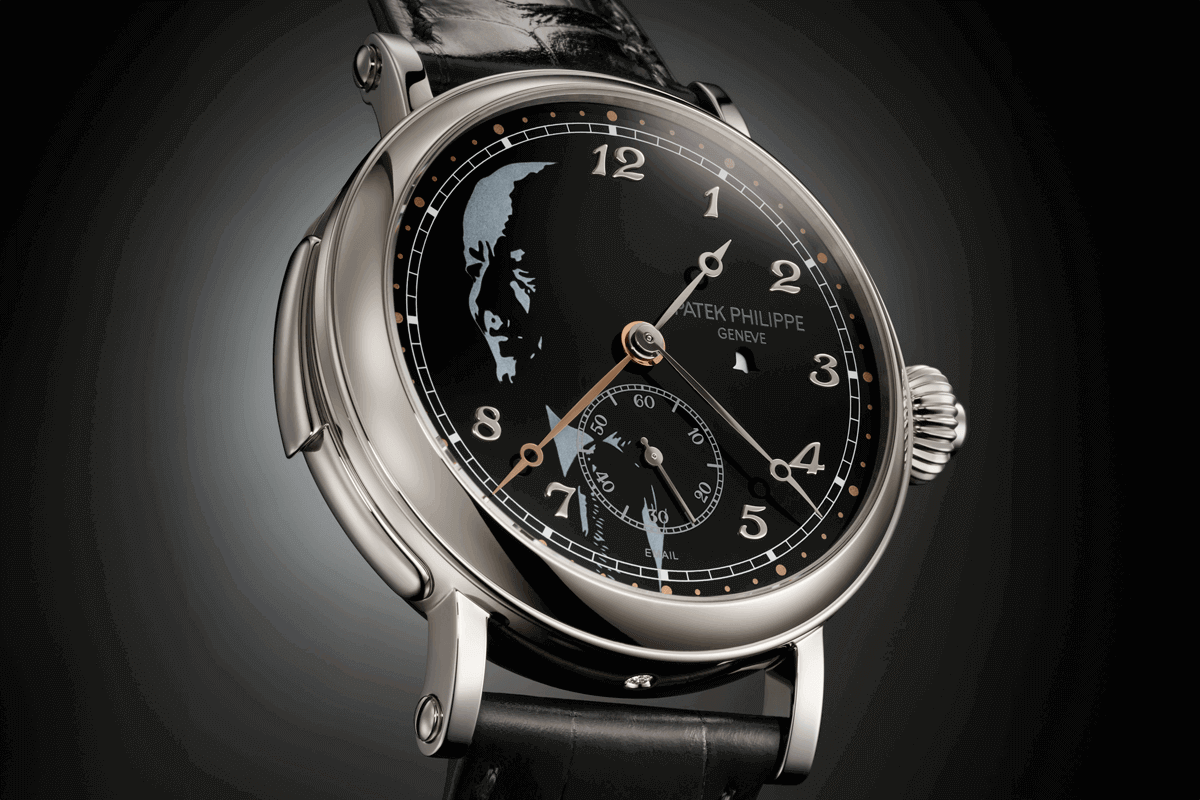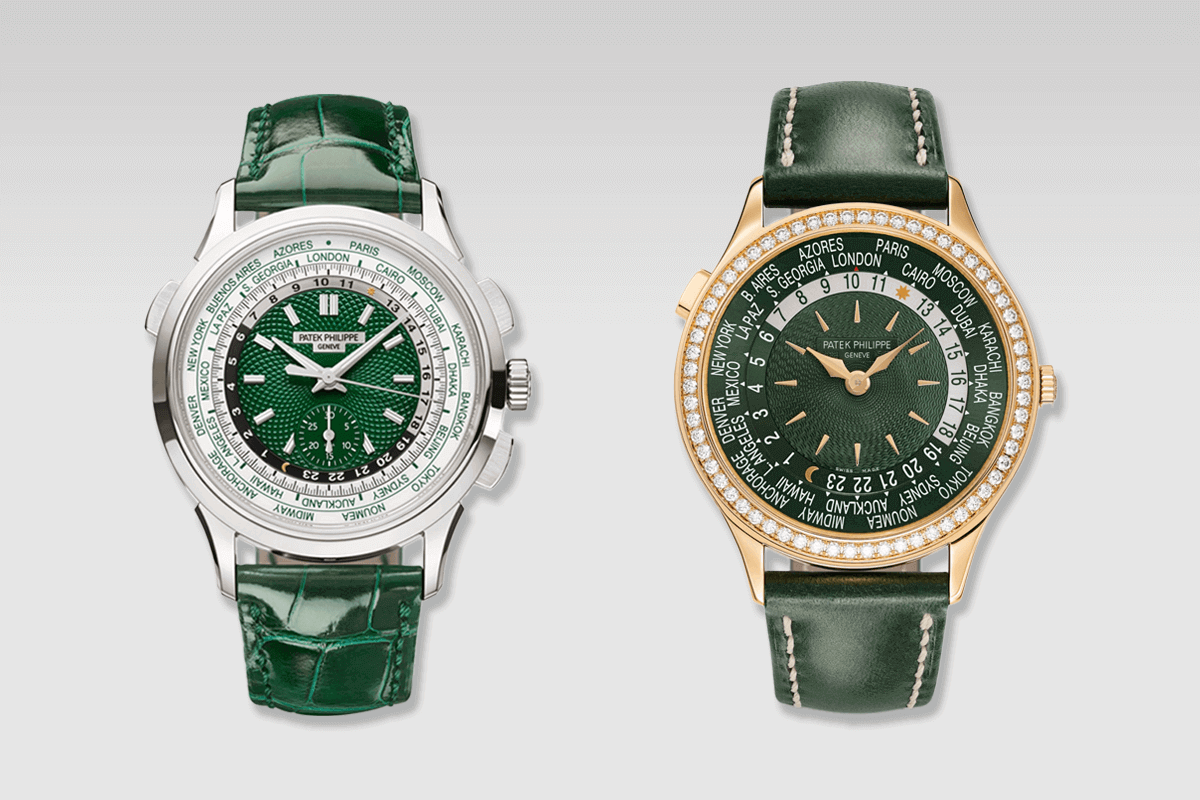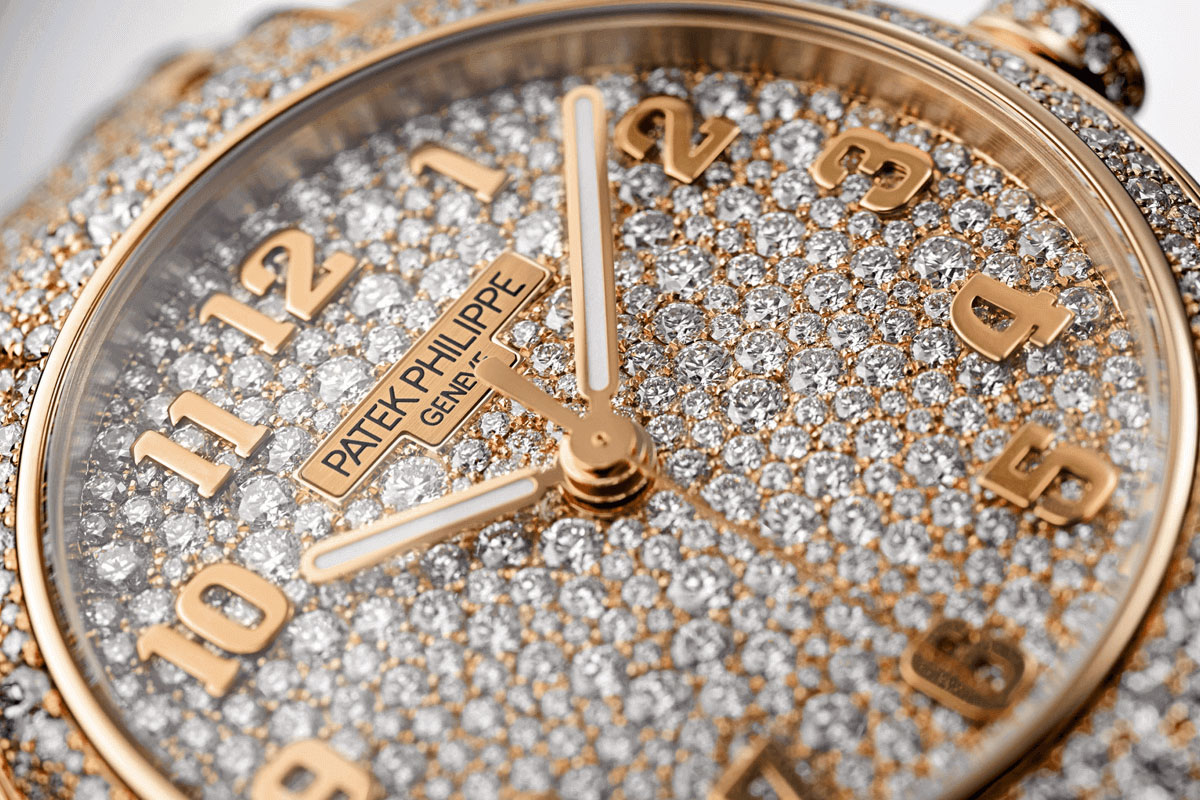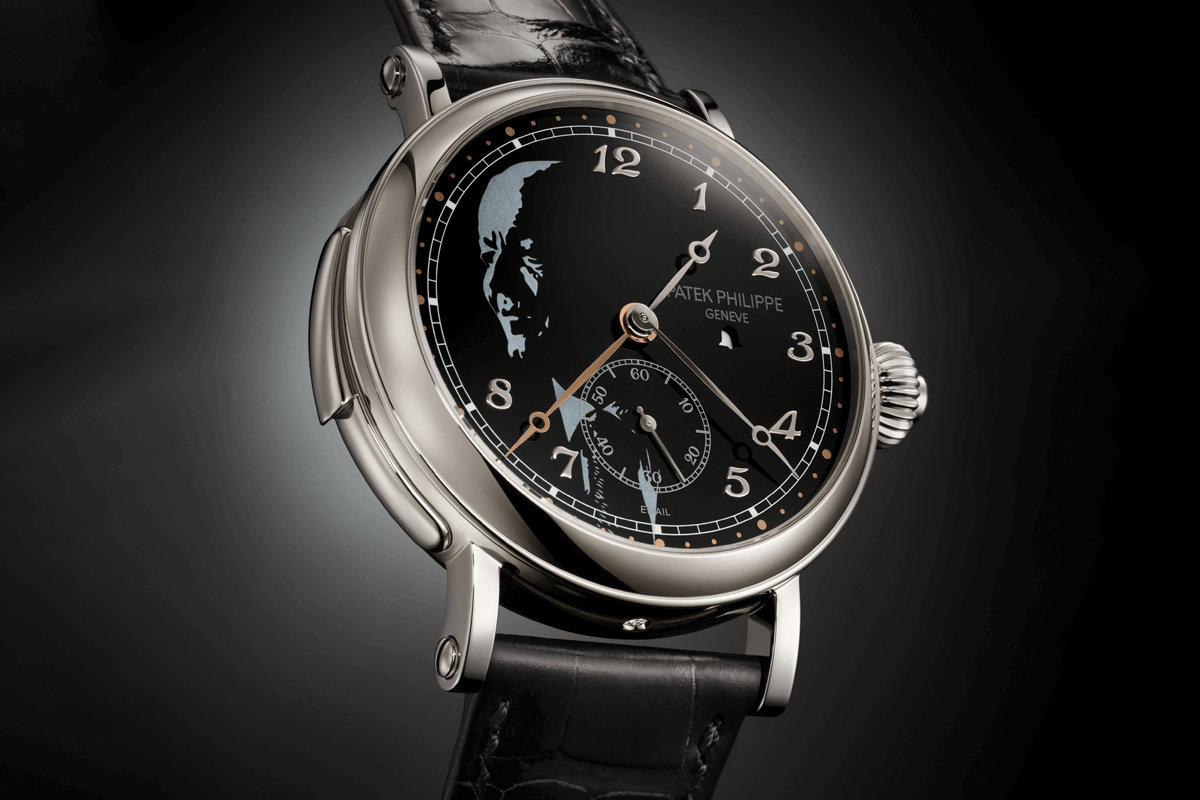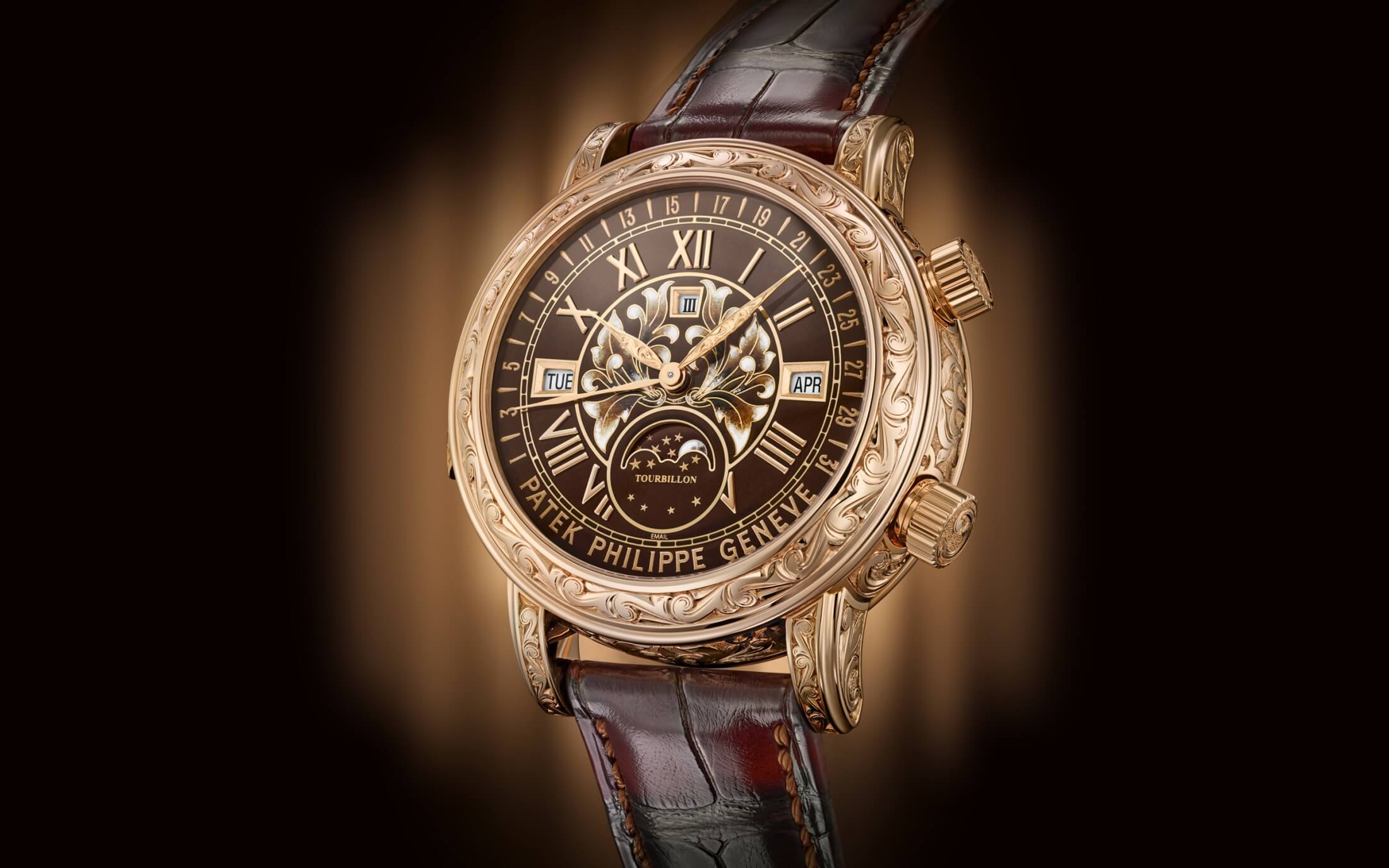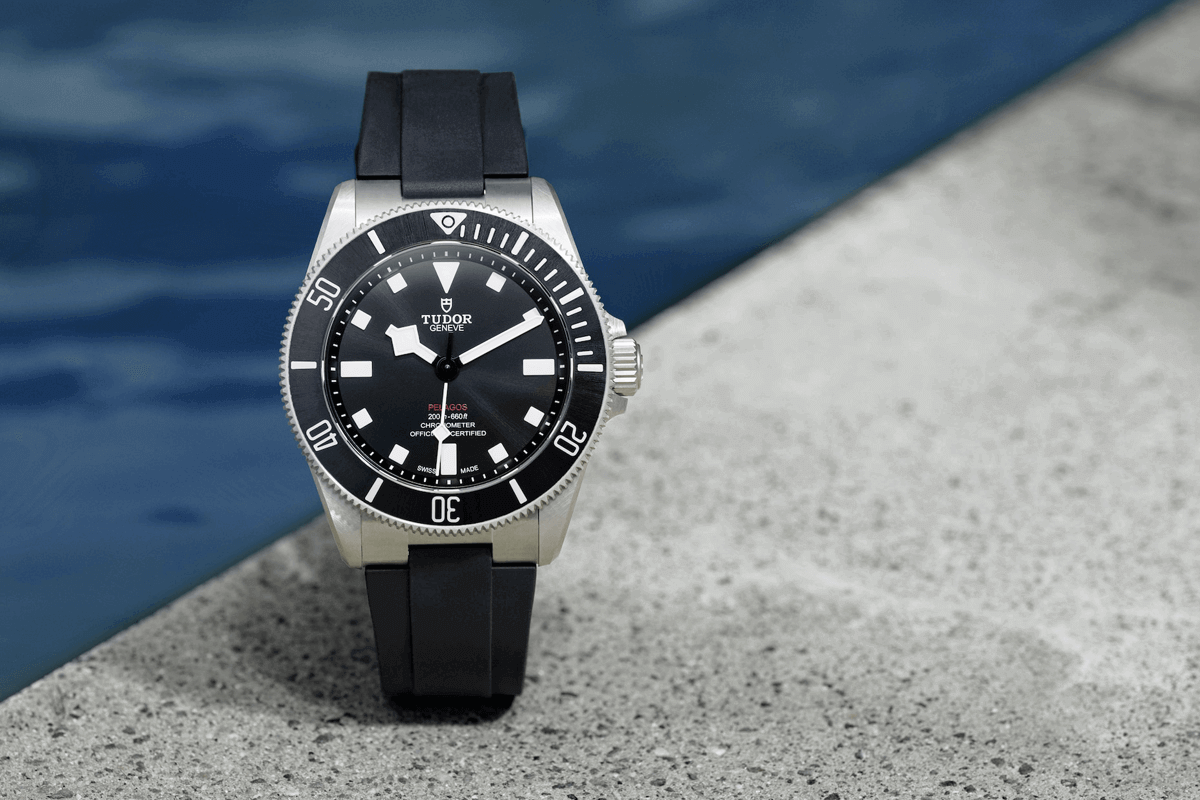
If these watches are not already in your collection, they should be on your list of ‘must-have’ references.
Patek Philippe’s watchmaking spans a broad spectrum of design, function, and sophistication. Their watches have a contemporary identity, but also feel timeless. With just three core shapes across its entire collection – the nuanced curves of the Calatrava case, the polished rounded cushion, and the arched rectangle – it has built a world of fine watchmaking. Deft and thoughtful refinements to these core forms bring a variety of styles to each of its lines. The interplay of tradition with innovation and function with style can be found in every design detail. The timepieces below capture this spirit behind the Manufacture’s watch and movement philosophy perfectly.

The world time complication found in the Ref. 5531G-001 is an example of both tradition and innovation at Patek Philippe from the earliest development of the complication.
The world timer is of course a Patek Philippe icon, with a design that has seen some refinements since Walser, Walt & Co. (Patek Philippe’s authorised dealer in Argentina) commissioned Louis Cottier to develop the Caliber 605 HU for a pocket watch. Cottier’s design standardised the 24 time zones and reference cities, improving the complication for wearers and watchmakers. Early versions of the Ref. 605 HU had uniform 24-hour rings that evolved into a split-colour design. The local city at 12 o’clock also lacked the red pointer indication used today.

The Patek Philippe Ref. 605 HU by Louis Cottier had a simple and elegant tonal design with interesting details – note the combination of lines and Arabic hour indicators in a strong black colour and the hour hand’s design.
The Ref. 605 HU was handmade by Cottier for 27 years, and he continuously evolved its design. One reference from the mid-1940s, the 605 HU DE (Décor Email) featured cloisonné enamel work on the inner dial depicting world maps and more. The Ref. 5531G-001 (and Ref. 5231G-001) perpetuate this tradition, an homage to Cottier’s watch with some differences. For one, the complication today is using a pusher for a convenient setting in a new city.
The case also differs from the early wristwatch Refs. 96 HU and 515 HU. The Ref. 5531G features a stepped bezel (a reference from the Ref. 844 pocket watch) with skeletonised lugs and a caseband and slide piece decorated with a guilloché hobnail pattern. This isn’t just decorative; the textured caseband is easier to grip and secure to ensure it doesn’t slip from the hand when activating the repeater. The barrel-style case profile delivers a sound-space that enhances the quality of its chimes. Every watch is tested by President Thierry Stern before leaving the manufacture.

The self-winding R 27 HU is another example of Patek Philippe’s forward-thinking, with an efficient micro-rotor and a 48-hour power reserve.
The Caliber R 27 HU is quite unique, chiming to the local time and not say, a reference home city. It’s a self-winding caliber, an uncommon advantage that keeps the repeater time-accurate when unworn. The gold micro-rotor, flying governor, gongs and hammers of the movement are visible through the exhibition caseback. The front is a glorious work of art, with a gold plate dial and 24-hour ring. At the heart of the display is a cloisonné enamel depiction of a steamship from the Belle Epoque fleet sailing on Lake Geneva, framed by a stunning sunset in the back.
Its dial and Rare Handcraft embrace tradition, while the case’s design and movement offer modernity. The Ref. 5531G-001 is a living slice of Patek Philippe and horological history that continues to evolve.
The Gentleman’s Partner

The Patek Philippe Ref. 6119G-001 is understated, yet unmistakable. Solemn but with the potential for endless creativity, it is the standard for tomorrow’s dress watch.
Patek Philippe’s modern Calatravas can trace their design back to the Ref. 96, the first to bear this name. In fact, all of its round-cased timepieces take reference to some extent from this timeless icon. With a case middle that glides fluidly into tapering lugs that are gently curved and rounded, the Ref. 96 epitomises Bauhaus simplicity. The slim bezel, minute track, and faceted hour markers are perfectly scaled, creating an invisible pattern of concentric rings pointing towards the dial’s centre.

The Patek Philippe Ref. 96D was the first Calatrava model to have the guilloché hobnail pattern engraved on the bezel; subsequent releases have held special significance for the Manufacture.
The success of the watch encouraged its new owners, the Sterns, to build on it. They began to introduce new variations such as the Ref. 96D in 1934, with a guilloché hobnail pattern engraved on its bezel. This bezel holds great significance: the Ref. 3919 that lifted the company out of the Quartz crisis bore a hobnail bezel. In 2021, a year before the Ref. 96’s 90th anniversary, Patek Philippe presented the new Ref. 6119G-001 based on the original Ref. 96D and following that, the Ref. 6119R-001 with a more conventional colourway.

The Patek Philippe Calatravas Ref. 6119G-001 and Ref. 6119R-001 offer two perspectives of the dress watch – contemporary with just a hint of casual, and a timeless classic with a touch of vintage.
The differences between the two watches highlight the Ref. 6119G’s modern identity. With shorter lugs and a larger case, the proportions have changed. A railroad-style minute track with 12 gold beads surrounds faceted polished hour indexes and dauphine hands that have sized up. A charcoal grey dial with a matte vertically brushed finish offers a contrasting texture against the polished guilloché bezel, a departure from the pristine white dials of before. Finally, a deep black compass-style small seconds counter with circular graining gives the dress watch a modern, industrial, chrome-and-black identity that’s sexy and elegant.

The hand-wound Caliber 30-255 PS fits perfectly into Ref. 6119’s case, with decorations and finishes that match the dial of the watch.
The Caliber 30-255 PS within Ref. 6119 is also new, an ultra-thin movement that provides autonomy of up to 65 hours and uses a classic Gyromax balance without any silicon components in the regulating components. Without modern materials, the movement still meets Patek Philippe’s precision requirements for its in-house Seal. Proof if proof were needed that craft can match technology. This successor to the original Calatrava may one day be the new reference by which Patek Philippe designs its dress watches a century from now.
Shaping Luxury’s New Image

The Patek Philippe Nautilus Ref. 5712/1A-001 was the first model to offer additional complications beyond a date window.
The Nautilus watch is an object that is synonymous with luxury. Even non-watch enthusiasts are familiar with its design. Allegedly sketched in five minutes on a napkin by Gérald Genta, the rounded octagonal case with a two-part clamshell design takes inspiration from the portholes of transatlantic ships.

Gérald Genta’s painting of the Patek Philippe Nautilus. Auctioned off in 2022 by Sotheby’s, it was sold for US$727,000.
Among the many Nautilus references, the Ref. 5712/1A-001 stands out. It is one of the few steel references remaining in line with the three-part case construction used by Patek Philippe up until 2022. More importantly, it is the only Nautilus that has an eccentric dial layout; on every other model, vertical symmetry seems non-negotiable.

The Patek Philippe Calatrava Ref. 5057G-010 “Cortina Watch 50th Anniversary” features two important details – a dial layout that dates back to the Ref. 5015 and the hobnail pattern bezel but with an additional row.
The origins of this design and dial go back to 1994 with Ref. 5015. The first Patek Philippe watch of its “useful complications” era, it had a power reserve and small seconds counter, in addition to a moon phase indicator with a 59-day cycle and a little hand to indicate its progress. The Ref. 5055 following it added an analogue date to the moonphase counter, thus requiring more space and creating the format. (The limited-edition Ref. 5057 references for the Cortina Watch also bear this dial.)

The back of the Patek Philippe Nautilus clearly reveals its porthole-inspired design, with a window through which the Caliber 240 PS IRM C LU can be seen.
The Ref. 5712/1A-001 was announced in 2006 for the 30th anniversary of the Nautilus together with the Ref. 5711 in steel as well as gold references. It was the first Nautilus watch that displayed more than the time and date; it was a sign of things to come. The Caliber 240 PS IRM C LU provides up to 48 hours of autonomy and is now used exclusively on Ref. 5712. It represents a pivotal moment in Patek Philippe’s history, when the Nautilus grew beyond its design to become a fully-fledged series, offering fine and high complications in an unmistakable form.
Expanding Fine Watchmaking

The Patek Philippe Aquanaut Luce Annual Calendar Ref. 5261R-001 is the first in the sports watch line to offer a complicated calendar.
The Nautilus was one of the first “crossovers” between a sports and dress watch. The ’80s and ’90s saw greater integration of the two segments in the industry. Along with this came the infiltration of high complications into sports models. For Patek Philippe, this broke new ground for the Aquanaut.

The Patek Philippe Advanced Research Aquanaut Travel Time Ref. 5650G showcased two bold innovations for the Manufacture.
Beginning with a simple three-hand model, more complications have emerged in the Aquanaut, including an Advanced Research Aquanaut Travel Time Ref. 5650G which uses a single component with a flexible mechanism to set its second time zone. This watch also introduced the Manufacture’s Spiromax balance spring in Silinvar with a patented terminal curve and inner boss.

The analogue annual calendar with date window on the Patek Philippe Ref. 5261R-001 brings some minor changes to the classic layout.
The most recent advancement is the Aquanaut Luce Annual Calendar Ref. 5261R-001. With a smaller case size and often presented with gem-set bezels or dials, the Aquanaut Luce suits the preferences of today’s collectors. The Ref. 5261R has a strong gender-neutral appeal, with a case size under 40mm and a blue-grey tone that’s both fresh and neutral. The brushed rose gold case with polished chamfers is paired with Patek Philippe’s patented annual calendar that requires just one forward adjustment at the end of February of two or three days, depending on the year.
Patek Philippe’s dress and high-complication models are still mostly housed in classic designs, but it is constantly challenging itself to consider new perspectives in design and function. That has brought us gems such as the Ref. 5261R-001. Its unified watch development considers every element of a timepiece at once, not as separate entities, with wholesome results.
Reinterpreting Classic Complications

The case and design of the Patek Philippe In-Line Perpetual Calendar Ref. 5236P-001 is based on Ref. 3448 and its dial is similar to Ref. 1591, but its technical development and overall design are clearly modern.
Curiosity is a quality that’s embraced at Patek Philippe, especially in the pursuit of new interpretations of its icons. To bring innovation, it must first identify what needs to be different with each new reference. One excellent example is its In-Line Perpetual Calendar Ref. 5236P.
Patek Philippe’s perpetual calendars come in analogue and digital formats, as well as a combination of the two. The fully digital calendar is presented in the form of three framed windows, typically at the top of the dial in line with the hour markers. Combining them into one single display brings functional and aesthetic benefits for the complication and connects it to a historic model: the Ref. P-1450 pocket watch with a similar display. (There’s also a slight resemblance to the Ref. 1591 and its descendant, the Ref. 5320G.)

The Patek Philippe Ref. 5320G-011 in white gold shows how the Manufacture modernises a historic watch design. The stepped lugs and bezel create depth while black oxidised indexes and hands with luminous coating add function and style.
The Ref. 5236P has a large central display on the dial with four discs on a single plane indicating the day, date and month. These discs jump instantaneously, a task made greater by the complexity of their design. To reduce friction, dual sets of ball bearings in a coplanar arrangement keep the discs running smoothly, while an anti-shock system prevents double jumps. Finally, a special component in this movement fixes the ‘1’ digit in place on months that end in 31, to prevent a wrong jump.

The perpetual calendar module of the Caliber 31-260 PS QL with seven displays uses 118 additional parts compared with a standard perpetual calendar. A heftier platinum micro-rotor keeps the movement relatively slim while maintaining winding efficiency.
To power the watch’s multiple calendar indicators including the moonphase and leap year, Patek Philippe relies on the Caliber 31-260 which has a generous torque. The perpetual calendar is designed as a module which means it can possibly be combined with other movements in the future.
These watches show how Patek Philippe derives new innovations by taking a close look at its own history and discovering them through a modern perspective. Find out more about them from our sales associates – make an appointment today.
Discover Patek Philippe collections at our boutiques, or online. Contact a sales representative today to learn more.




